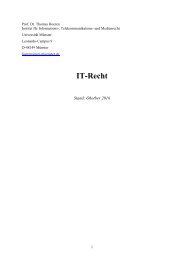3d4yVkKMl
3d4yVkKMl
3d4yVkKMl
Create successful ePaper yourself
Turn your PDF publications into a flip-book with our unique Google optimized e-Paper software.
- 30 -<br />
71. In the view of the Court, the two elements of the phrase “for purposes of scientific<br />
research” are cumulative. As a result, even if a whaling programme involves scientific research,<br />
the killing, taking and treating of whales pursuant to such a programme does not fall within<br />
Article VIII unless these activities are “for purposes of” scientific research.<br />
72. The Court first considers the arguments of the Parties and the intervening State regarding<br />
the meaning of the term “scientific research” and then turns to their arguments regarding the<br />
meaning of the term “for purposes of” in the phrase “for purposes of scientific research”.<br />
(a) The term “scientific research”<br />
73. At the outset, the Court notes that the term “scientific research” is not defined in the<br />
Convention.<br />
74. Australia, relying primarily on the views of one of the scientific experts that it called,<br />
Mr. Mangel, maintains that scientific research (in the context of the Convention) has four essential<br />
characteristics: defined and achievable objectives (questions or hypotheses) that aim to contribute<br />
to knowledge important to the conservation and management of stocks; “appropriate methods”,<br />
including the use of lethal methods only where the objectives of the research cannot be achieved by<br />
any other means; peer review; and the avoidance of adverse effects on stock. In support of these<br />
criteria, Australia also draws on resolutions of the Commission and the Guidelines related to the<br />
review of special permits by the Scientific Committee (see paragraph 47 above).<br />
75. Japan does not offer an alternative interpretation of the term “scientific research”, and<br />
stresses that the views of an expert cannot determine the interpretation of a treaty provision. As a<br />
matter of scientific opinion, the expert called by Japan, Mr. Walløe, agreed in certain respects with<br />
the criteria advanced by Mr. Mangel, while differing on certain important details. Japan disputes<br />
the weight that Australia assigns to resolutions of the Commission that were adopted without<br />
Japan’s support, and notes that resolutions are recommendatory in nature.<br />
76. The Court makes the following observations on the criteria advanced by Australia with<br />
regard to the meaning of the term “scientific research”.<br />
77. As to the question whether a testable or defined hypothesis is essential, the Court<br />
observes that the experts called by both Parties agreed that scientific research should proceed on<br />
the basis of particular questions, which could take the form of a hypothesis, although they<br />
disagreed about the level of specificity required of such a hypothesis. In short, the opinions of the<br />
experts reveal some degree of agreement, albeit with important nuances, regarding the role of<br />
hypotheses in scientific research generally.



